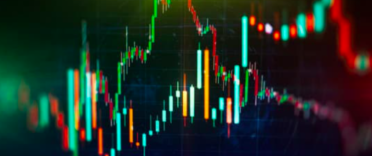A number of today’s papers are running with the story that the plummeting BP share price (down 34% since mid-April) has wiped billions from pension funds across the country. So how has your pension fund been affected?
BP’s steady dividend payments have been an investment of choice for a lot of final salary pension funds as well as investment fund managers. The desire for returns has led to an ever growing exposure to stocks such as BP.
Accordingly the BBC report that ‘’ The sharp fall in BP's share price is bad news for UK pension funds, which are major shareholders in the firm.
The oil company has claimed that it pays £1 in every £7 of dividends that the pension funds receive from FTSE 100 companies.
Although the price change does not directly affect BP's ability to pay dividends, it does indicate that markets are anticipating a significant cut’’
So with falling share prices and a bleaker outlook for dividends it’s no wonder that people approaching retirement are concerned.
But behind the headlines, as is often the case, there are very few figures backing up the predictions of pensioner poverty. While I can’t shed light on the BP exposure of individual final salary schemes (but suggested to be around 1.5% of assets on average) it is possible, but admittedly difficult, to shed some light for those who save via private pensions, such as SIPPs and personal pensions.
Money to the Masses has analysed over 2,500 of the unit trust /OEIC investments out there and come up with a list of the top 18 funds with the highest direct exposure to BP shares. Investing in unit trusts/OEICS can be done directly or via investment vehicles such as personal pensions or SIPPs. So the list is relevant to investors generally, not just pension savers.
Insurance companies, the providers of personal pensions and SIPPS, also offer their own internally managed pension funds, as well as access to the externally managed unit trusts, but the data on the share holdings within these managed funds is usually out of date, often by as much as 5 months. However, while analysing the overall data the general trend amongst fund managers has been a slight reduction, if anything at all, in their BP exposure over time. So I think we can safely assume that the managed pension funds will not have ramped up their BP exposure in the interim. But even when taking into account the ‘old’ data for the managed pension funds the usual unit trust/OEIC suspects still crop up time and again.
Given that most of the data bellow is the position as at 30th April, prior to sharpest falls in the BP share price, the % holding figures are not skewed by the worst of the drop in the BP share price. In all likelihood if you were able to view the % BP holding as at today the figures will likely be 30% lower which would reflect the market price fall rather than an active fund management sell-off.
| Fund Name | % holding in BP | Position as at |
| Martin Currie - UK Growth | 9 | 30/04/2010 |
| S&W - Munro | 8.96 | 30/04/2010 |
| Clerical Medical - UK High Income | 8.9 | 31/03/2010 |
| Pru - Newton Higher Income | 8.9 | 20/02/2010 |
| GLG - UK Select | 8.9 | 30/04/2010 |
| M&G - UK Select | 8.8 | 30/04/2010 |
| Ignis - UK Focus | 8.7 | 30/04/2010 |
| Prudential - Equity Income | 8.7 | 30/04/2010 |
| JP Morgan - UK Managed Equity | 8.6 | 30/04/2010 |
| Wesleyan - Growth | 8.31 | 30/04/2010 |
| Standard Life Inv - UK Equity High Income | 8.3 | 30/04/2010 |
| M&G - Dividend | 8.2 | 30/04/2010 |
| JO Hambro Capital Management - UK Equity Income | 8.1 | 30/04/2010 |
| Halifax - UK FTSE 100 Index Tracking | 8.1 | 30/04/2010 |
| Prudential - UK Growth | 8.1 | 20/02/2010 |
| Jupiter - High Income | 8.05 | 30/04/2010 |
| Family - Charities Ethical | 8.04 | 31/03/2010 |
| Jupiter - Income | 8.01 | 30/04/2010 |
(Canada Life’s Growth fund also had a significant exposure to BP but the publicised fund data is over 6 months old)
So if your portfolio is well diversified, i.e. has exposure to non-equity investment/funds as well then there should be no need for panic. But obviously if your entire pension fund is invested in just one of the aforementioned funds, plus you don’t have long until retirement, then you might need to rethink your investment strategy. But the actual drop in your pension fund as a direct result of the oil disaster will still only be a couple of %. The biggest danger to your pension fund/investment is still another economic downturn.
If you found this post/blog useful please leave a comment below and let others know about Money to the Masses.






As the oil spill in the Gulf grows larger and more deadly, decimating all that it touches, BP continues to turn down assistance from Americans who just want to help clean up the mess. (…I hear they even turned down Director James Cameron and actor Kevin Costner…)
First let’s get one thing perfectly straight: If you want to go and help clean up the oil spill, don’t let some corporate Big-Whigs “handle” you into believing that you’d be more of a liability, than an asset. I applaud you for recognizing that we all depend on our oceans for our very survival. It is this water that sustains every living thing on our planet, and it is also this water that we must protect in order to save ourselves from extinction.
BP has downplayed the problem in the Gulf from the beginning as a means of corporate damage control. I don’t think they’ve yet recognized the severity of the problem. As I’ve written in past blog posts; the pipe needs to be capped and the relief well needs to be drilled. It’s not an exact science by any means, and if BP doesn’t get it right the first time, they’ll have to do it over, and over, and over again, until they do. How many months (or years) will that take? How much damage will have been done to our environment by then? We’ve already seen what 51 days of oil can do to the Gulf of Mexico… What would happen if the oil was left, unabated, for several months, or years? It’s a frightening example of corporate greed gone awry and it’s criminal, pure and simple.
Corporations should never be allowed the opportunity to risk the lives of everyone on the planet just to make a profit for a few shareholders. (What good is money, after all, if you don’t have air to breathe, water to drink, or food to eat without fear of contamination?)
BREAKING NEWS: I’ve just heard that those enormous plumes floating just under the surface of the water have been certified by the National Oceanic and Atmospheric Administration (N.O.A.A.) as crude oil.
(Are we just casual witnesses to our own demise? I wonder…)